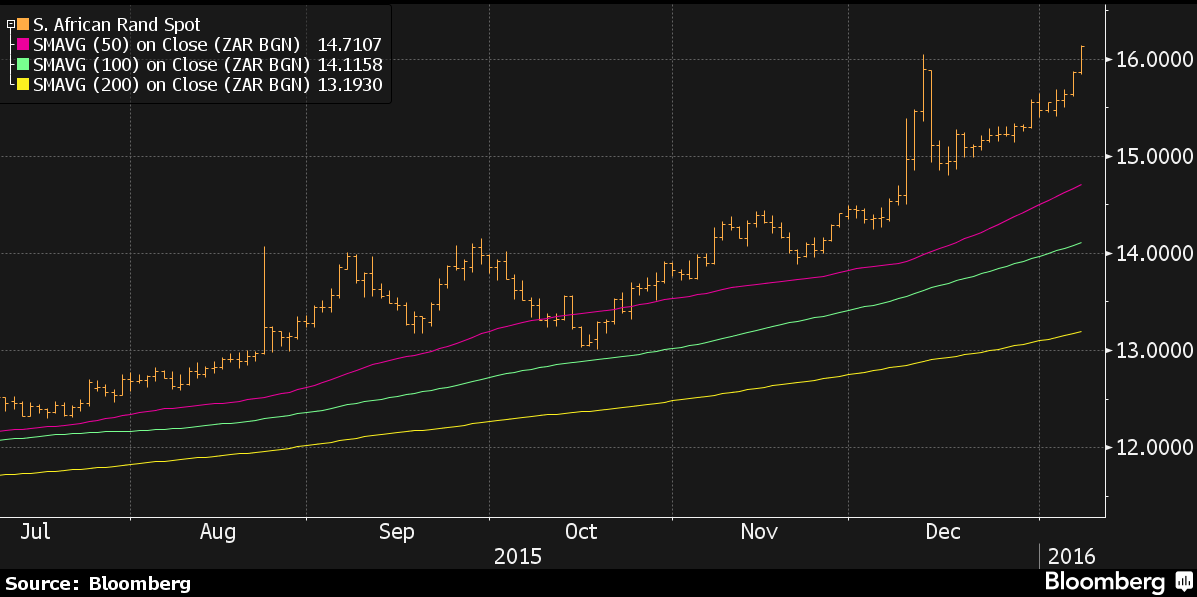South Africa’s banks index rose in Johannesburg to levels not seen since before President Jacob Zuma unexpectedly fired Finance Minister Nhlanhla Nene in December, causing lenders including FirstRand and the local unit of Barclays to plummet by records.
The seven-member FTSE/JSE Africa Banks Index climbed as much as 4.2% on Thursday in the city to its highest since December 4.
The biggest gainers were Barclays Africa Group [JSE:BGA], which rose as much as 6.3%, and Standard Bank [JSE:SBK], which jumped as much as 6%. The rand, which tumbled after Zuma’s move, has rebounded to be 0.4% higher this year.
The day after Nene was removed on December 9 and a little-known lawmaker appointed to the post, the banks index crashed by a record 14%.
That turned into the deepest two-day decline since the end of apartheid in 1994 as more than R150bn was wiped off the value of bank shares.
While Zuma backtracked and named Pravin Gordhan finance minister four days after the Nene announcement, bank stocks have taken more than 10 weeks to recover.
“There are quite a few developments in the last two to three weeks that have been positive for South Africa, the rand and for the banks’ funding costs,” Nico Smuts, an analyst at 360ne Asset Management in Johannesburg, which oversees the equivalent of about $650m, said by phone.
“Those have come together to form a much more positive outlook for the banking sector for the year ahead.”
Adam Phillips, independent treasury consultant at Umkhulu Consulting, told Fin24 on Thursday that while it has taken a while, the rand has suddenly become a ‘yield play’.
“The inflation data is taking the lead here in creating this change in sentiment towards the currency,” he said. “What is going on in Parliament (behind the scenes), what the 60 top executives have discussed and the make up of the budget is a closely guarded secret.
“We can all make predictions and wish lists, but until Gordhan speaks next Wednesday, there will be a certain amount of ‘thumb sucking’ by operators.
“For that reason they have their seat belts fastened and continue to be nervous,” he said. “We saw some big ‘stop losses’ triggered by foreign players who went long above R16/$ and have been hurt mainly by local asset managers being a good supplier of USD into the market.
“At times the volume can be good, but generally the volumes are thin and dictating the movements,” he said. “It is also clear that interest rates are going to move up.
“I am just glad the rates are causing the movement and we don’t have to use our forex reserves like Mexico did on Wednesday to stabilise their currency.
“It appears that Minister Gordhan is in the hot seat and everyone else in cabinet will have to take it on the chin what he decides,” he said. “Clearly he does not want to see a rating downgrade. If he avoids that, then the yield players will start fighting with the exporters.”
[Source: News24]





 WhatsApp us
WhatsApp us 

